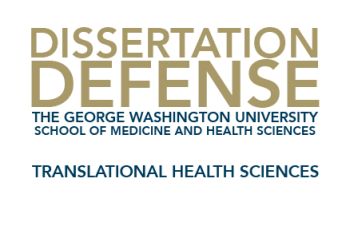
The dissertation defense is open and will be held both virtually and in-person.
This event has passed. The written dissertation or abstract is available by clicking the link below.
The PhD in Translational Health Sciences Program is proud to announce the Dissertation Defense of:
PhD Candidate: Jennifer Catena Davis, MSHS
Toward a Patient-Partnered Model of Clinical Trial Design: A Qualitative Descriptive Case Study of the Duchenne Muscular Dystrophy Clinical Research Partnership
Dissertation Committee Chair: Sabrina Figueiredo, PhD
February 29, 2024, 10:00 am to 12:00 pm ET
To determine the safety and efficacy of new medications, clinical trials should be designed to test outcomes that patients find meaningful; however, clinical trials often fail to address patient priorities. Partnerships between researchers and patient communities may result in clinical trials that better reflect the patient experience, but there are few successful models of such partnerships. The Duchenne Muscular Dystrophy (DMD) community has emerged as a particularly successful example. This qualitative descriptive case study examines the factors that have enabled the DMD community to effectively create and sustain this partnership. Data was collected from interviews with patients, parents, and researchers from academic and industry settings, and from observations at large meetings of the patient and research communities. Five themes emerged from the qualitative analysis: specific nature of the condition; utilize legislative advocacy to influence funding and regulatory climate; create a cohesive community and leverage its resources; foster a culture of collaboration; and fight for future generations. The themes identified in the analysis were interpreted through the lens of the Behaviour Change Wheel and translated into a stakeholder-facing application model, the FOCUS Model. The FOCUS Model is presented along with a discussion guide that communities may use to evaluate and improve their research partnership readiness.